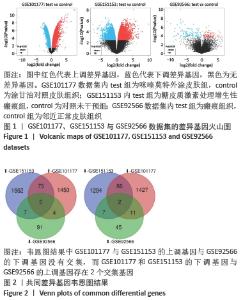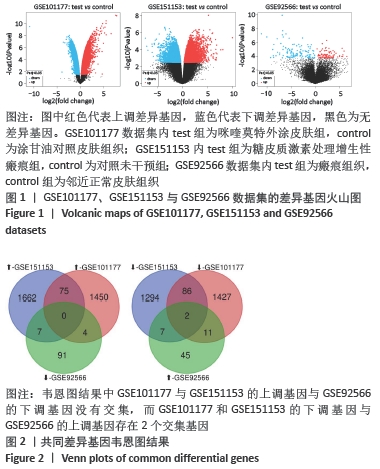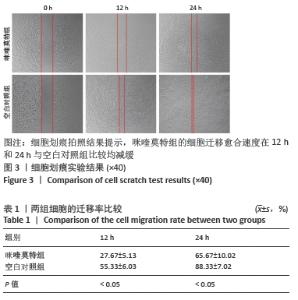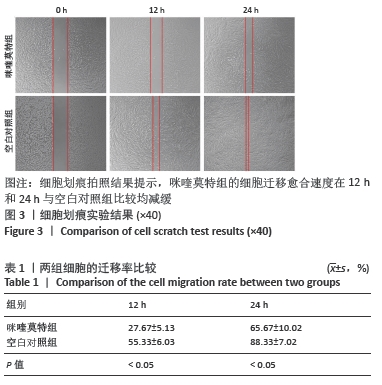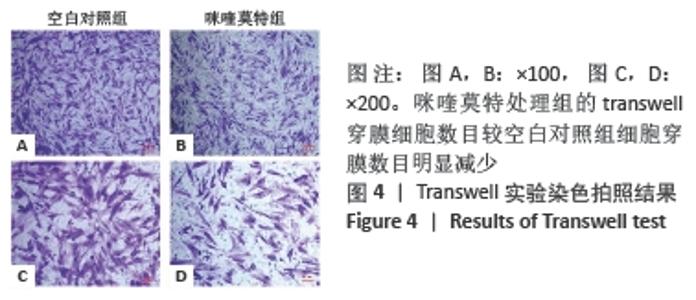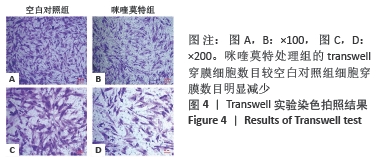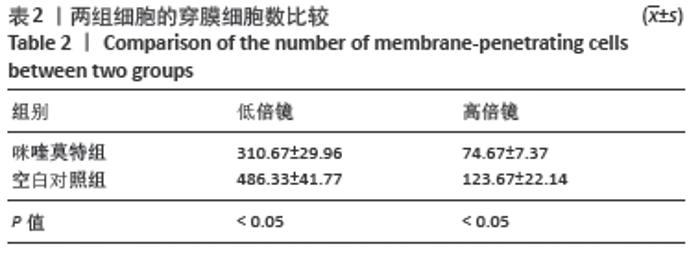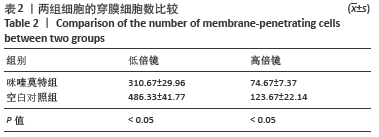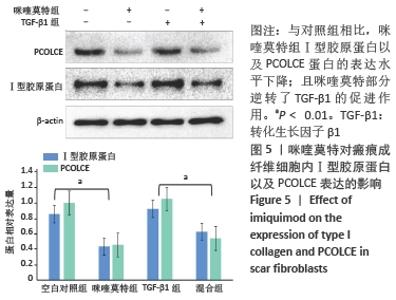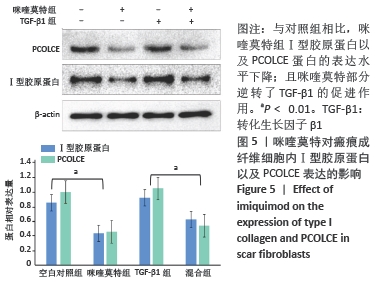[1] BAO Y, XU S, PAN Z, et al. Comparative Efficacy and Safety of Common Therapies in Keloids and Hypertrophic Scars: A Systematic Review and Meta-analysis. Aesthetic Plast Surg. 2020;44(1):207-218.
[2] COENTRO JQ, PUGLIESE E, HANLEY G, et al. Current and upcoming therapies to modulate skin scarring and fibrosis. Adv Drug Deliv Rev. 2019;146:37-59.
[3] KARPPINEN SM, HELJASVAARA R, GULLBERG D, et al. Toward understanding scarless skin wound healing and pathological scarring. Faculty Rev. 2019;8:787.
[4] YANG SW, GENG ZJ, MA K, et al. Comparison of the histological morphology between normal skin and scar tissue. J Huazhong Univ Sci Technolog Med Sci. 2016,36(2):265-269.
[5] SHPICHKA A, BUTNARU D, BEZRUKOV EA, et al. Skin tissue regeneration for burn injury. Stem Cell Res Ther. 2019;10(1):94.
[6] GRABOWSKI G, PACANA MJ, CHEN E. Keloid and Hypertrophic Scar Formation, Prevention, and Management: Standard Review of Abnormal Scarring in Orthopaedic Surgery. J Am Acad Orthop Surg. 2020;28(10):408-414.
[7] WANG ZC, ZHAO WY, CAO Y, et al. The Roles of Inflammation in Keloid and Hypertrophic Scars. Front Immunol. 2020;11:603187.
[8] HUANG C, OGAWA R. Systemic factors that shape cutaneous pathological scarring. FASEB J. 2020;34(10):13171-13184.
[9] AL-SHAQSI S, AL-BULUSHI T. Cutaneous Scar Prevention and Management: Overview of current therapies. Sultan Qaboos Univ Med J. 2016;16(1):e3-e8.
[10] HAYASHI T, FURUKAWA H, OYAMA A, et al. A new uniform protocol of combined corticosteroid injections and ointment application reduces recurrence rates after surgical keloid/hypertrophic scar excision. Dermatol Surg. 2012;38(6):893-897.
[11] 徐浩翔,崔盘根.咪喹莫特作用机制和临床应用进展[J].中华皮肤科杂志,2013,46(6):447-449.
[12] BERMAN B, HARRISON-BALESTRA C, PEREZ OA, et al. Treatment of keloid scars post-shave excision with imiquimod 5% cream: A prospective, double-blind, placebo-controlled pilot study. J Drugs Dermatol. 2009;8(5):455-458.
[13] 李晓庆,刘文军,段建兴, 等.手术联合多种干预措施治疗耳部瘢痕疙瘩疗效的网状meta分析[J].中华整形外科杂志,2018,34(12):1010-1019.
[14] 杜启翠,肖文林,孙桂兰, 等.原代培养人增生性瘢痕成纤维细胞的生物学行为[J].中国组织工程研究,2013,17(7):1174-1179.
[15] 吴霞,岑建萍,程浩.咪喹莫特对人疤痕疙瘩来源成纤维细胞增殖及凋亡的影响[J].医学分子生物学杂志,2014,11(4):200-203.
[16] LEE HJ, JANG YJ. Recent Understandings of Biology, Prophylaxis and Treatment Strategies for Hypertrophic Scars and Keloids. Int J Mol Sci. 2018;19(3):711.
[17] WERNER S, KRIEG T, SMOLA H. Keratinocyte-fibroblast interactions in wound healing. J Invest Dermatol. 2007;127(5):998-1008.
[18] WANG ZC, ZHAO WY, CAO Y, et al. The Roles of Inflammation in Keloid and Hypertrophic Scars. Front Immunol. 2020;11:603187.
[19] WISEMAN J, SIMONS M, KIMBLE R, et al. Effectiveness of topical silicone gel and pressure garment therapy for burn scar prevention and management in children: study protocol for a randomised controlled trial. Trials. 2017;18(1):72.
[20] BERMAN B, MADERAL A, RAPHAEL B. Keloids and Hypertrophic Scars: Pathophysiology, Classification, and Treatment. Dermatol Surg. 2017;43:S3-S18.
[21] JACOB SE, BERMAN B, NASSIRI M, et al. Topical application of imiquimod 5% cream to keloids alters expression genes associated with apoptosis. Br J Dermatol. 2003;149 Suppl 66:62-65.
[22] STASHOWER ME. Successful treatment of earlobe keloids with imiquimod after tangential shave excision. Dermatol Surg. 2006;32(3):380-386.
[23] DE MESQUITA CJ, LEITE JA, FECHINE FV, et al. Effect of imiquimod on partial-thickness burns. Burns. 2010;36(1):97-108.
[24] 董达科,陈晓栋,王建力.咪喹莫特对瘢痕疙瘩成纤维细胞增殖和胶原产生的影响[J]. 中华皮肤科杂志,2006,39(10):568-570.
[25] YAN L, WANG LZ, XIAO R, et al. Inhibition of microRNA-21-5p reduces keloid fibroblast autophagy and migration by targeting PTEN after electron beam irradiation. Lab Invest. 2020;100(3):387-399.
[26] LUO L, LI J, LIU H, et al. Adiponectin Is Involved in Connective Tissue Growth Factor-Induced Proliferation, Migration and Overproduction of the Extracellular Matrix in Keloid Fibroblasts. Int J Mol Sci. 2017;18(5):1044.
[27] WITT E, MALIRI A, MCGROUTHER DA, et al. RAC activity in keloid disease: comparative analysis of fibroblasts from margin of keloid to its surrounding normal skin. Eplasty. 2008;8:e19.
[28] PULIDO D, SHARMA U, VADON-LE GOFF S, et al. Structural Basis for the Acceleration of Procollagen Processing by Procollagen C-Proteinase Enhancer-1. Structure. 2018;26(10):1384-1392.
[29] HASSOUN E, SAFRIN M, ZIV H, et al. Procollagen C-Proteinase Enhancer 1 (PCPE-1) as a Plasma Marker of Muscle and Liver Fibrosis in Mice. PloS one. 2016;11:e0159606.
[30] ZHU Q, GUO W, ZHANG S, et al. Synergistic effect of PCPE1 and sFRP2 on the processing of procollagens via BMP1. Febs Lett. 2019;593(1):119-127.
[31] WONG VW, YOU F, JANUSZYK M, et al. Transcriptional profiling of rapamycin-treated fibroblasts from hypertrophic and keloid scars. Ann Plast Surg. 2014; 72(6):711-719
[32] WANG S, ZHONG L, LI Y, et al. Up-regulation of PCOLCE by TWIST1 promotes metastasis in Osteosarcoma. Theranostics. 2019;9(15):4342-4353.
[33] GREENBERG EN, MARSHALL ME, JIN S, et al. Circadian control of interferon-sensitive gene expression in murine skin. Proc Natl Acad Sci U S A. 2020; 117(11):5761-5771.
[34] IMBERTSON LM, BEAURLINE JM, COUTURE AM, et al. Cytokine induction in hairless mouse and rat skin after topical application of the immune response modifiers imiquimod and S-28463. J Invest Dermatol. 1998;110(5):734-739.
[35] LI VW, LI WW, TALCOTT KE, et al. Imiquimod as an antiangiogenic agent. J Drugs Dermatol. 2005;4(6):708-717.
[36] 刘振东,王瑞,李小磊,等.干扰素α-2b抑制瘢痕形成的研究与热点[J]. 中国组织工程研究,2021,25(2):317-321.
[37] LEE JH, KIM SE, LEE AY. Effects of interferon-alpha2b on keloid treatment with triamcinolone acetonide intralesional injection. Int J Dermatol. 2008; 47(2):183-186.
[38] YANG SY, YANG JY, HSIAO YC, et al. A Comparison of Gene Expression of Decorin and MMP13 in Hypertrophic Scars Treated with Calcium Channel Blocker, Steroid, and Interferon: A Human-Scar-Carrying Animal Model Study. Dermatol Surg. 2017;43 Suppl 1:S37-S46.
|
